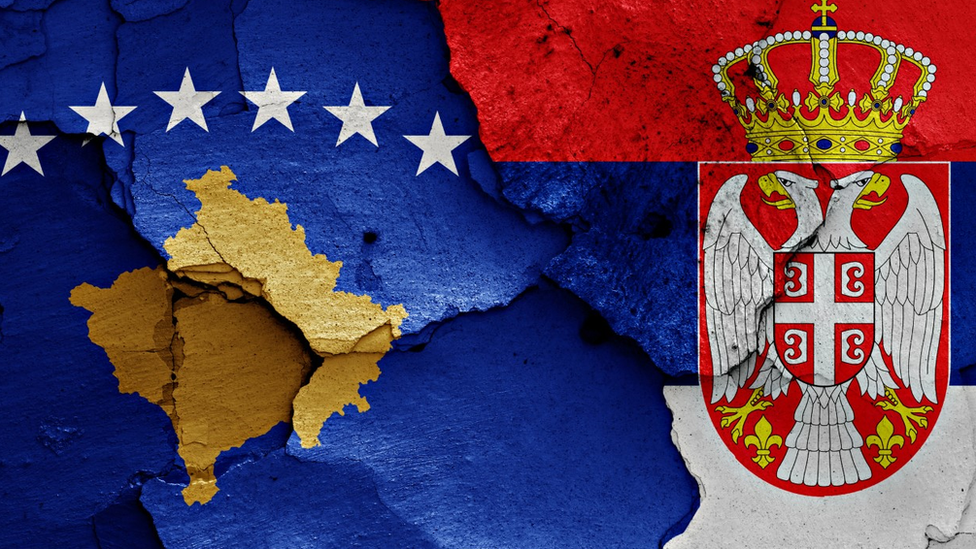Russia leveraging Serbia-Kosovo tensions

Russian Foreign Minister Sergey Lavrov stated on Thursday that Serbs in Kosovo and Metohija are being persecuted just as Ukrainian Nazis persecuted Russians in Donbas. Serbs are being quietly pushed out of the ‘southern Serbian province’ through bureaucratic methods, and a similar plan was in place by the Nazis in Kyiv for the Russians, Lavrov said.
Furthermore, Russian Foreign Ministry spokesperson said that Western countries are to blame for the failure of normalization efforts and for the crisis sparked by Pristina in Kosovo. “Albin Kurti, the so-called Prime Minister, is forcefully displacing Serbs living in Kosovo and Metohija, using a wide range of repressive tools and intimidation tactics,” the Russian spokesperson stated.
Why is this significant
With unresolved conflicts still looming between Serbia and Kosovo, as well as in Bosnia and Herzegovina, Moscow is aiming to exploit, and further fuel, the ongoing instability to preserve its influence, undermine the EU and NATO, as well as to divert attention from the war in Ukraine, justify its aggression and the annexation in Eastern Ukraine.
Context
The Kremlin retains partnerships and alliances with the leadership in Serbia and Bosnia and Herzegovina’s Republika Srpska. Serbia maintains ties with Russia, to strengthen its position on the Kosovo issue and to benefit from investments and business relations, while Bosnian Serb leader Milorad Dodik has found an ally in Russia in his efforts to consolidate control over Republika Srpska and oppose the centralization of Bosnia and Herzegovina.
Serbian Deputy Prime Minister Aleksandar Vulin met with Russian President Vladimir Putin last week in Moscow to discuss “further strengthening the Serbian-Russian strategic partnership”. Vulin reiterated his pride in Serbia’s refusal to participate in “anti-Russian hysteria” and emphasized that Belgrade has not joined the Western sanctions against Moscow in response to Russia’s invasion of Ukraine.
Vulin, who is under U.S. sanctions, stressed that “Serbia led by Aleksandar Vučić is a Serbia that will never become a member of NATO, which will never impose sanctions against the Russian Federation, and which will never allow its territory to be used for any anti-Russian actions.”
Putin referred to the ‘deep-rooted relations, their historical roots and the spiritual affinity between the people of Russia, the Russian nation and the Serbian nation’. He emphasized that ‘Russia plays a crucial role in supplying Serbia with energy resources, doing so efficiently and at a high level, always in a timely manner and on favourable terms for Serbia.’ Putin added that Russia has invited Serbia’s President Vučić to the events which will be held as part of the BRICS leaders’ meeting in Kazan.
Reacting to Vulin’s visit in Moscow, Brussels warned Serbia that keeping strong ties with Moscow was “not compatible” with its aspiration to join the bloc. “Maintaining or even increasing the ties with Russia during the time of its illegal aggression against the Ukrainian people, is not compatible with EU values and is not compatible with the EU accession process,” the EU’s foreign affairs spokesman Peter Stano said.


